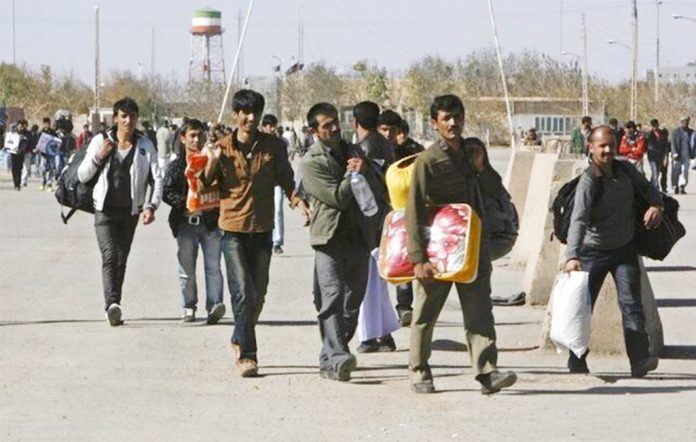The United Nations Assistance Mission in Afghanistan (UNAMA) has urged for an investigation into reports that a large group of Afghan migrants was shot and killed at the Afghanistan-Iran border. Afghan media outlets, including Tolo News, reported that over 200 Afghan migrants, who had crossed into Iran illegally, were attacked in Iranian territory. Witnesses claimed dozens were killed or injured in the attack, which allegedly occurred in mid-October.

The alleged incident took place in Iran’s Sistan province, specifically in the Sarbaz district near the Kala Gan border area. The reports have drawn significant attention, but details remain murky. While Afghan media and human rights organizations have pointed fingers at Iranian border guards, Iran’s ambassador to Afghanistan, Hassan Kazemi Qomi, swiftly denied the accusations. In a post on the social media platform X (formerly Twitter), Qomi dismissed the reports of the deaths of “dozens of illegal nationals.”
UNAMA expressed its “deep concern” over the incident, describing the reports as disturbing and emphasizing the need for a “thorough and transparent” investigation. In a statement, the UN mission stressed that the rights of migrants, refugees, and asylum seekers are protected under international law, and that all such incidents must be properly investigated to ensure accountability.

Afghanistan’s Taliban-led government has not officially confirmed the attack, but it acknowledged that an investigation is underway. Deputy government spokesman Hamdullah Fitrat issued a statement noting that because the incident took place “beyond Afghanistan’s borders,” confirming the details has been challenging. Fitrat also revealed that a high-ranking delegation, comprising officials from Afghanistan’s interior, foreign, and defense ministries, has been dispatched to investigate the matter. They will compile a report once the facts are verified.
This alleged attack comes against the backdrop of strained relations between Afghanistan and its neighbours, particularly Iran and Pakistan, who have both been home to millions of Afghan refugees for decades. The mass exodus of Afghans following the Taliban’s takeover in 2021 has heightened tensions in the region. The withdrawal of U.S.-led Western forces from Afghanistan after a 20-year-long conflict has left many Afghans fearing persecution under Taliban rule, prompting waves of migration to neighbouring countries.

Iran and Pakistan, both dealing with economic hardships and political challenges, have increasingly tightened their borders and cracked down on Afghan refugees. Tehran, in particular, has been enforcing stricter regulations against undocumented Afghan migrants, often deporting thousands each month. The alleged border incident, if confirmed, could further strain relations between Afghanistan and Iran, while also drawing international condemnation.
Human rights organizations have long raised concerns about the treatment of Afghan refugees in both Iran and Pakistan. In recent years, Afghan migrants have faced violence, exploitation, and even death while trying to cross into neighboring countries in search of safety and better economic opportunities. These challenges are exacerbated by both nations’ hardline policies toward undocumented migrants, further worsening the humanitarian situation.
Iran, which shares a long and porous border with Afghanistan, has become a primary destination for Afghan refugees fleeing the Taliban regime. However, Iran has been grappling with its own internal issues, including economic sanctions and a shrinking job market, which have made it less hospitable to migrants. Tehran has deported hundreds of thousands of Afghan migrants since the Taliban took power, but the latest allegations, if true, represent a significant escalation in the treatment of refugees.

In response to the incident, human rights activists have called for international pressure on Iran to uphold the rights of migrants and ensure that the lives of vulnerable Afghan refugees are protected. The United Nations has also underscored the need for global cooperation to address the root causes of mass migration from Afghanistan, while ensuring that host countries adhere to international legal standards regarding refugee protection.
The results of the Afghan government’s investigation are eagerly awaited, as the outcome could have serious implications for the already fragile relations between Afghanistan and Iran. The international community, particularly human rights watchdogs and refugee advocacy groups, will closely monitor the situation, seeking accountability for any violations of international law.
As the Afghan government continues its probe into the alleged attack, it remains to be seen whether Iran will cooperate in clarifying the circumstances of the incident. In the meantime, the humanitarian crisis affecting Afghan migrants continues to escalate, highlighting the urgent need for a coordinated global response to protect the rights and lives of refugees in the region.




